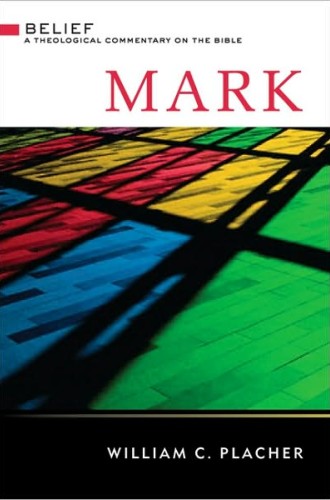A review of Mark
Before his untimely death in November of 2008, William Placher was a celebrated teacher who exercised his gifts of exceptional insight and clarity of expression not only in the classroom but also in his many books, book chapters and edited works. One project in progress at the time of his passing was a biblical commentary series authored by well-respected theologians and published by Westminster John Knox. The series, called Belief: A Theological Commentary on the Bible, was founded by Placher and Amy Plantinga Pauw, who designed it to focus on the significance of Bible passages for the church in today's world. Fortunately, Placher's own inaugural volume, on the Gospel of Mark, was all but finished when he died—missing only a concluding personal epilogue. "Thus his commentary, like the Gospel of Mark itself, ends without a sense of final closure," reads the publisher's note at the beginning of the volume.
Having great theologians write biblical commentaries has longstanding precedent (think of Calvin and Luther). Placher and Pauw contend that a return to this practice is needed because historical-critical approaches to scripture "rarely offer much help to either theological reflection or the preaching of the Word." They write that it is professional theologians—as opposed to professional biblical scholars—who are called to "convey the powerful sense of God's merciful presence that calls Christians to repentance and praise."
It's a fine thing for theologians to comment on scripture, and if Placher's volume is representative of those to come, we will all benefit. Yet perhaps the implied indictment of biblical scholarship is overstated. Some recent works by biblical scholars and historical critics have commented profoundly (if not at length) on theological and homiletical aspects of biblical texts. In such works, sustained engagement with the literary, linguistic, rhetorical and other details of a biblical passage is not mere preliminary to the good stuff, but part and parcel of it.





